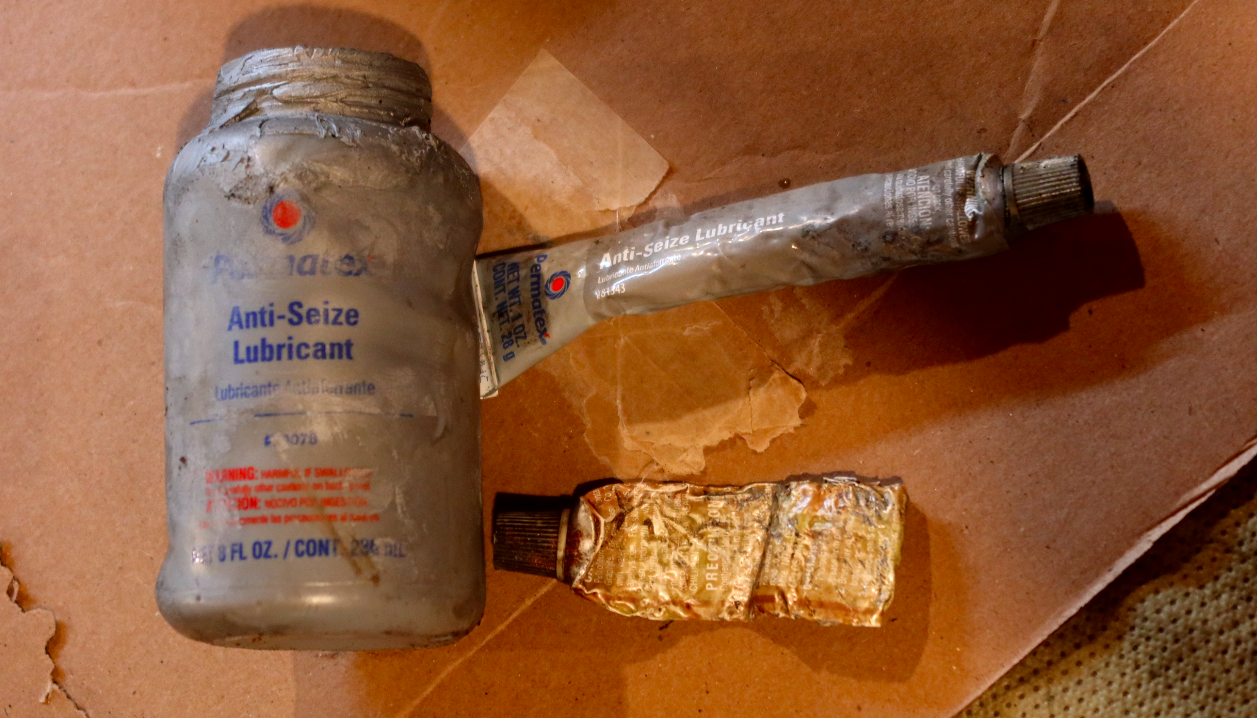This Anti-Seize Comparison Is A Must-Watch For Wrenchers In The Rust Belt
If you live in the American rust belt, chances are, you've broken many, many bolts while fixing your car. It's an awful feeling—hearing that "snap," and then experiencing your wrench abruptly give way, possibly sending your knuckles into a sharp and rusty shard of steel. To prevent such a thing from happening again, the ticket is a magical paste called "anti-seize." This video comparison is what you'll need to choose the best variant of this rust-inhibitor so you can make every bolt in your car unsnappable.
As a Michigander who buys cars for $500, I've dealt with some of the rustiest vehicles on this continent, so at this point, I actually secrete anti-seize from my pores (attractive? No. But useful? Without a doubt.) My go-to has always been the brown, copper-based stuff, but my friend Brandon has always sworn by the silver aluminum anti-seize.
Which is better at keeping bolts from rusting and seizing up in their threaded holes? Well, Todd from the YouTube channel Project Farm has the answers:
Todd's methodology shown in the video is fairly straightforward. He torques some nuts to 90 lb-ft, having lathered various types of anti-seize onto the threads of studs. He the then sprays the fasteners with an oxidizing agent, and uses heat to catalyze the reaction.
Then Todd measures the torque required to remove the rusty nuts. The idea is that, had all the nuts received no anti-seize, they'd all require roughly the same torque to break loose, and any improvement over the control fasteners (the ones to which Todd applied no anti-seize) can be attributed to the effectiveness of the lubricant applied to the threads.
Todd also assesses how well each anti-seize compound prevents rust build-up on a piece of steel that has been covered in anti-seize and then sprayed with a rust-encouraging agent. Plus, Todd's testing considers how each anti-seize paste protects the surface of a metal when sprayed with water.
In a wacky move, the video concludes with Todd running an engine using anti-seize in place of engine oil, with the idea being that one of the main purposes of oil is to prevent a motor from seizing, so perhaps something with "anti-seize" in the name will also accomplish this goal? The engine doesn't seize, but it breaks a rod.
Also, it appears that the copper-based anti-seize is the best at ensuring that nuts don't seize due to corrosion, which is lucky for me. I really would not have enjoyed uninstalling my epidermal anti-seize excretion system. Lord knows it was painful enough to install it.
